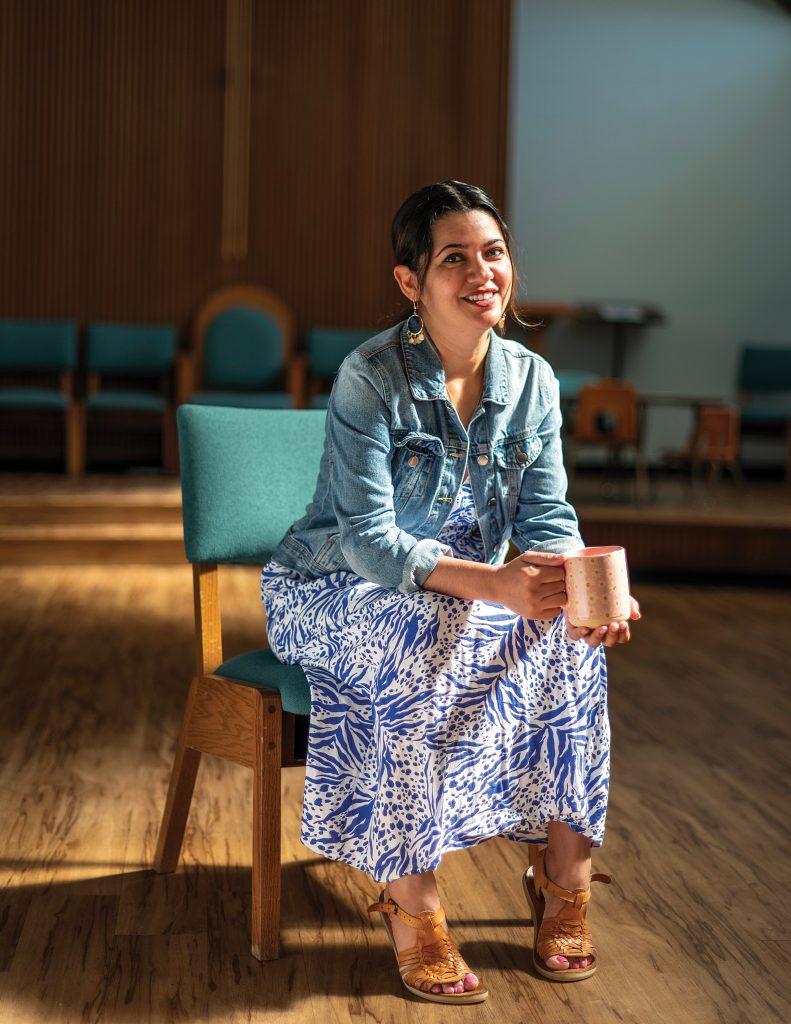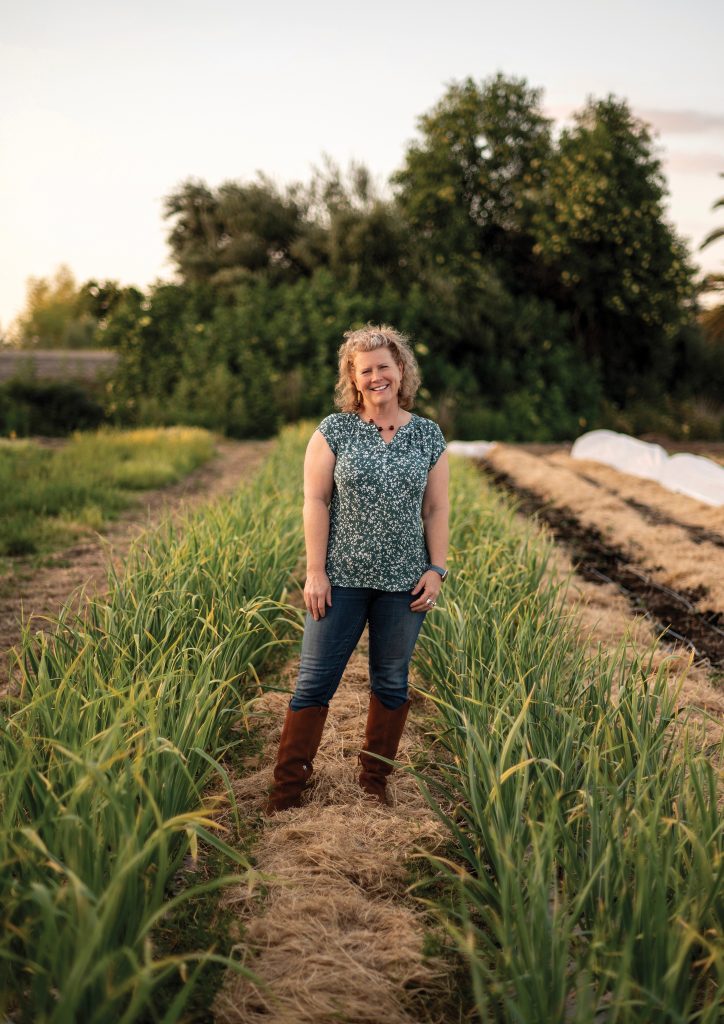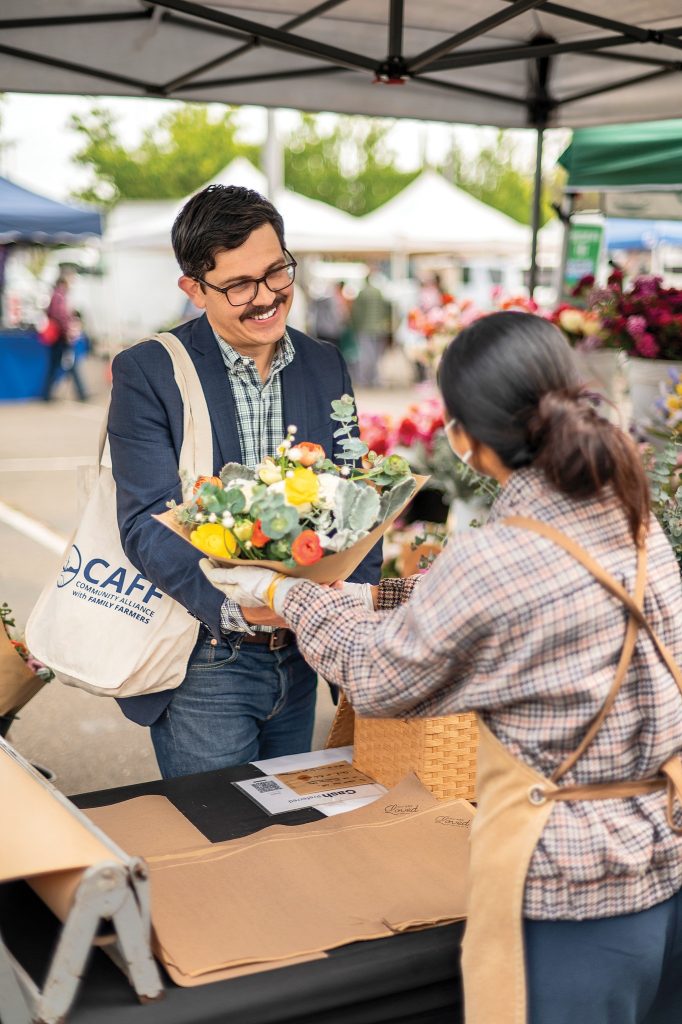By Marybeth Bizjak
Here at Solving Sacramento, we like to look for the solvers — the people who see what’s wrong in their communities and say what can I do to fix it?
What is it about solvers? Many start looking to solve problems before they even reach adulthood. It’s as if being of service is in their bones, their blood, their very genes. We found five such people who are working to make the greater Sacramento region a better place to be.
Here are their stories.
Teaching leadership over coffee

For Gabby Trejo, the seeds of community action were planted early. As a sixth-grader who had immigrated to San Diego from Mexico, she participated in the headline-making school walkouts protesting Proposition 187, which would deny undocumented immigrants like herself access to public health care and education. Later, as a college student at Chico State, she organized large demonstrations urging the university to recognize undocumented students living in the shadows.
Today, as executive director of Sacramento ACT (Area Congregations Together), Trejo still advocates for social justice for immigrants and other marginalized people. But rather than protesting and organizing, she teaches others how to do those things. It’s the old give-a-man-a-fish maxim: By teaching others how to lead, she gives knowledge, power and agency to the people most affected by the problems that need fixing.
Sacramento ACT works with 40 local religious congregations of various faiths, along with 11 schools in the Sacramento Unified School District, on problems related to housing, immigration, education, climate change and homelessness. Religion is not a focus but rather a locus around which communities can gather. “There’s very little evangelizing,” says Trejo. “No matter what faith you’re talking about, they all call on their communities to be active participants in justice.”
Trejo measures success by the number of people whose leadership skills grow after they work with Sac ACT. She coached one undocumented woman who spoke almost no English and shook with fear after driving to her first meeting. But within months, the woman had become a confident advocate both for her children’s education and their greater school community. Sacramento ACT has notched other, more visible successes: In 2016, its members helped expand health coverage to undocumented immigrants in Sacramento County, and last year, they worked to pass SB 567, giving wrongfully displaced tenants the right to sue property owners.
Trejo does all this not by lobbying muckety-mucks in suits, but by sitting down with real people and teaching them how to use their voice to solve their own problems. “I’m constantly building relationships with members of congregations,” she explains. “Let’s say, I drink a lot of coffee.”
Preparing first-time homeowners

Real estate agent Ashley Garner knew that most first-time homebuyers don’t really understand the homebuying process, so she wrote a book, a step-by-step guide that sat in her laptop for two years while she pursued her career.
One day, she was talking with Sacramento visionary Roshaun Davis, the founder of Unseen Heroes, who had recently started a community development organization called CLTRE. One thing led to another, and before she knew it, he had hired her to turn that unpublished manuscript into an eight-week-long program designed to help 25 Sacramentans displaced by the Aggie Square development in Oak Park buy their first home.
Called CLTRE Keeper, the course, taught by Garner, starts with mindset (Are you ready to buy? Why do you want to buy?) and moves from credit to budgeting to choosing an agent, estate planning and how to avoid foreclosure. The participants receive lots of valuable, concrete help, including $17,500 for a down payment from the city, free financial coaching through the city’s Financial Empowerment Center, housing counselors to hold their hand throughout the process, and special mortgage rates and financial incentives from local banks. CLTRE gives each student an additional $2,500 to pay down debt or use for a down payment.
The first 25 students completed the course earlier this year, and some are now shopping for homes and putting in offers. Others are working on lowering their debt, improving their credit scores or increasing their income. They must buy in the Oak Park neighborhood, where the average cost of a home — condo, townhouse or single-family house — is about $400,000.
Garner is getting used to seeing her students cry with joy when they are approved for a mortgage. For her, it’s about more than just buying a home; it’s about building generational wealth for people of color and others who have traditionally been shut out of the housing market.
“These are people who worked for the city of Sacramento or the state of California for 25 years and they don’t own anything,” she says. “How can you serve your city or state and they’re not serving you?”
Garner’s next class of would-be homebuyers starts in June. Meanwhile, she already has a nickname, given by her first set of students: Ashley the Home Girl.
Growing future farmers

In an era when people rarely spend more than a couple of years in a job before jumping to the next position, Mary Kimball has spent two-and-a-half decades at one organization, the Woodland-based Center for Land-Based Learning. Thanks to that longevity, Kimball has become one of the leading figures in California’s efforts to cultivate the next generation of farmers.
Kimball, who grew up on a small farm in Yolo County, studied agricultural science and management at UC Davis and got a master’s in human and community development from Ohio State before Yolo walnut grower Craig McNamara hired her to run a program that brings local high school students to farms, exposing them to agriculture as a career and an industry worth preserving. She later expanded the program throughout the state. That program morphed into CLBL, which Kimball has run since 2000.
She has steadily grown the center to include programs for adults as well as high-schoolers. The center offers, among other things, a seven-month-long training program for would-be farmers, a farm business incubator program, an urban farm in West Sacramento where small farmers can grow crops, a mobile food truck where they can sell their goods, and an apprenticeship program where they can train for farm management jobs.
Being at one organization for 25 years has its advantages, according to Kimball. “If you stay a long time, you get the opportunity to solve bigger and bigger problems,” she says.
These days, she’s working on big policy issues such as climate change, land access for beginning farmers and supplying food to low-income, immigrant and senior communities. Kimball knows just about everybody in the agricultural sphere and is a connector of people. And she just plain knows a lot of things about a lot of things.
“We certainly don’t have all the answers,” says Kimball. “But there’s always something to work on, some problem to fix.”
Turning trash into gold

Driving around Sacramento in a used Ford Ranger pickup truck, David S Baker is an unlikely warrior in a battle with Big Waste for every banana peel and apple core discarded in the capital city. It’s a David-and-Goliath situation, with Baker as the little guy, struggling to wrest a few percentage points of the city’s organic waste away from the big guys so it can be turned into rich, healthy soil.
Baker got started on his hero’s journey about 15 years ago as an employee at Selland’s Market-Cafe in East Sacramento. While working on sustainability issues for Selland’s, he started a nonprofit called Green Restaurants Alliance Sacramento, partnering with local eateries on things like cork recycling, zero waste and green packaging. Eventually, he became convinced that composting restaurant food scraps was top priority, so he started ReSoil Sac in 2014.
The group collects food waste from about 20 restaurants, including The Waterboy, Magpie Cafe and Majka Pizzeria & Bakery, and distributes it directly to community gardens and urban farms such as Root 64 Farm for use as compost. Unlike municipal waste haulers, ReSoil cuts out the composting middleman. “We want these scraps to stay local,” says Baker. “We don’t need them to be sent off 60 miles to be processed and sent back to us.”
ReSoil Sac is a third-party hauler, with restaurants paying for its services. “We charge less than Big Waste,” says Baker. Big Waste is WM, aka Waste Management Inc., the Texas behemoth that provides trash management services for Sacramento and many other municipalities around the country.
Baker is always on the lookout for new clients. Corti Brothers, the East Sacramento specialty grocery store, recently signed on. Baker has his eye on the ethnic restaurants that line Broadway. He likes “small, tight-knit spots” that the group can service easily with its pickup truck or the two e-bikes with trailers that it bought with grant money from CalRecycle. The program, while small, has diverted almost 2 million pounds of organic material from landfills.
“This is the regenerative matter that we need to build climate resilience in Sacramento,” he says. “We want to sow it back into our landscape.”
From community organizer to policy influencer

Paul Towers goes to bureaucratic meetings — everything from city council meetings to hearings at the state Legislature — so the rest of us don’t have to.
Towers wears two hats. As executive director of the Community Alliance with Family Farmers, he supports small farms up and down the state, assisting them to survive and thrive in an era of agricultural consolidation. As co-founder and secretary of the Sacramento Food Policy Council, he helps residents grow, share and eat the foods they want, the way they want them.
Social justice has always been his north star. Towers grew up in Arizona with social activist parents and remembers marching as a child in support of Arizona making Martin Luther King Jr. Day a state holiday. He moved to California when he was in high school and studied environmental policy at UC Davis. After graduation, he worked as a community organizer on the East Coast for attorney Jan Schlichtmann (immortalized in the movie “A Civil Action”), helping New England communities clean up their hazardous waste sites.
Returning to California, he did community work focused on hazardous pesticides in rural and agricultural communities. But, he says, “I was spending so much time trying to put Band-aids on problems. I wanted to work more on the generative side — still seek justice, but uplift the vision of the solutions we’d like to see.”
At CAFF, Towers focuses much of his time and attention on big-picture issues: getting state money for farmers affected by drought and floods; creating an agricultural land equity task force to work on land access issues; getting farmers a seat at the table in state groundwater allocation decisions. He also has staffers who can help farmers with specific problems, such as how to improve a single farm’s irrigation system.
“Our focus is about meeting farmers where they are and supporting their needs,” he explains.
If CAFF takes the big-picture approach, the Sacramento Food Policy Council zeroes in on smaller but no less important issues. In 2011, Towers was instrumental in getting the Sacramento City Council to allow residents to keep backyard chickens. The council later approved an ordinance allowing small-scale farming and farm stands on residential property, thanks to Towers and SFPC.
These days, Towers keeps chickens in his own backyard, as well as a garden where he loves to get his hands dirty. But he also relishes sitting in the boring meetings and brokering the hard decisions so that others don’t have to. “People go into farming because they love getting their hands in the soil, not because they want to sit in a city council meeting,” he says. “I see my role as being that bridge.”
This story is part of the Solving Sacramento journalism collaborative. Solving Sacramento is supported by funding from the James Irvine Foundation and James B. McClatchy Foundation. Our partners include California Groundbreakers, Capital Public Radio, Outword, Russian America Media, Sacramento Business Journal, Sacramento News & Review, Sacramento Observer and Univision 19.


The story of CLTRE Keeper is truly inspiring! Garner’s dedication to helping displaced Sacramentans turn their dreams of homeownership into reality is both heartwarming and impactful. The program she has crafted, with its comprehensive approach to financial literacy and home buying, is a powerful tool for empowering individuals and families. It’s incredible to see how her efforts are not only guiding participants toward homeownership but also paving the way for building generational wealth in communities that have been historically underserved.